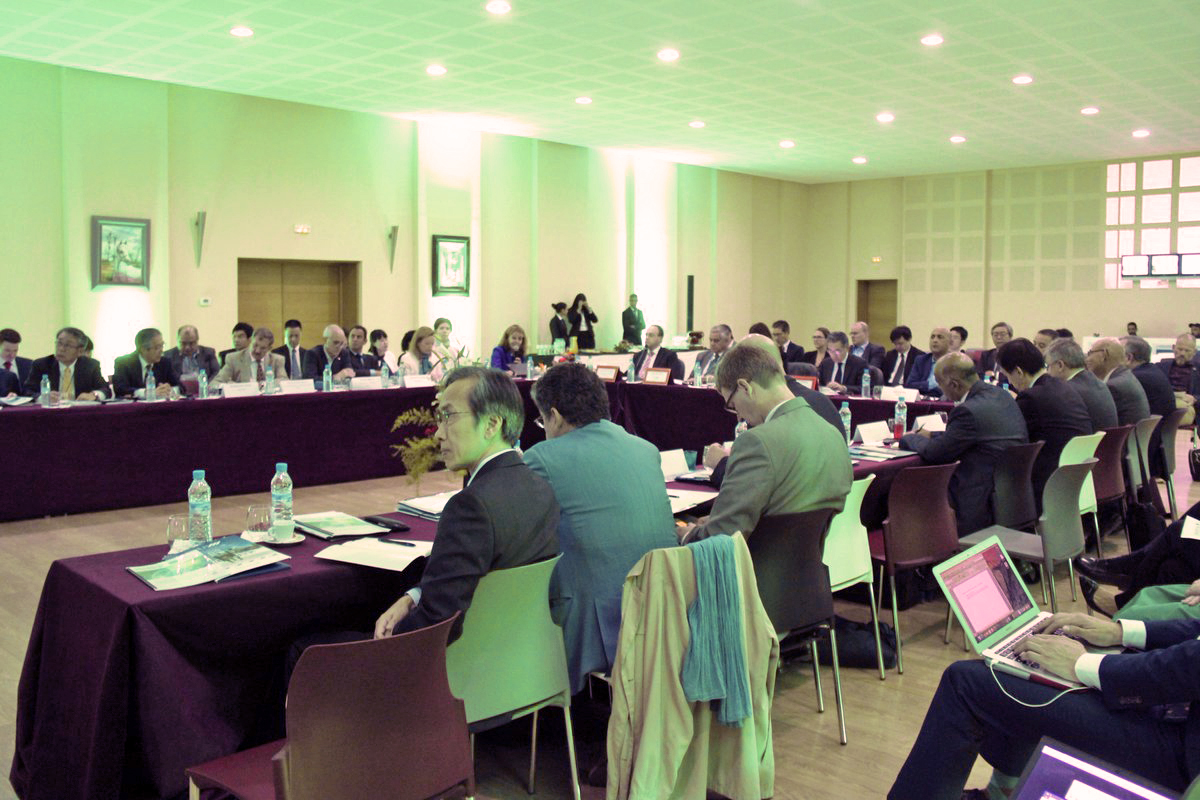COP22's Final day of first week: Public-private rendez vous
 While most Party negotiators and observers were enjoying their well-deserved weekend break, a group of about 50 people from government and business decided to extent their first week of COP22 to the fullest by coming together on Sunday afternoon at the “Université Privée de Marrakech”, about 15 kilometres (10-12 miles) south of the centre.
While most Party negotiators and observers were enjoying their well-deserved weekend break, a group of about 50 people from government and business decided to extent their first week of COP22 to the fullest by coming together on Sunday afternoon at the “Université Privée de Marrakech”, about 15 kilometres (10-12 miles) south of the centre.
An event organised by the United States Council for International Business (USCIB), the Moroccan industry group CGEM and the Major Economies Business Forum (or BizMEF, of which BusinessEurope is a member), the group dedicated their afternoon discussing how to design important public-private connections at national and international levels under the Paris Agreement.
The meeting kicked off with a session on public-private dialogue for continuous improvement of nationally determined contributions (NDCs). Business groups presented a series of case studies on how major business groups in Norway, Denmark and the OECD had interacted with governments in the preparation of domestic (I)NDCs and considered ways for business to contribute to transparency in reporting and reviewing national progress and inform future national pledges. Both business and government representatives agreed that both have a lot to gain from working together on the NDCs, especially in the fields of meeting sub-national efforts, improving transparency and measurement, verification and verification (MRV) systems, and, as some rightfully pointed out, seeking to maintain political continuity of the pledges made. The starting point for this cooperation are the 5-year cycles that are at the heart of the infrastructure of the Paris Agreement.
The second session focussed on private sector inputs to the Paris Agreement cycles of assessment, review and renewal. BizMEF started off with a presentation on how INDCs could be complemented by additional measures, for example through the use of integrated assessment models (IAMs) that can take into account assumptions on population, productivity growth and technological availability that INDCs generally miss. Such modelling exercises can also potentially improve the comparability of national efforts (acknowledging that countries have different abatement costs), provide implications for competitiveness and provide future (ex-ante) assessments of unforeseen events (e.g. natural disasters, economic recessions, etc.). Participants also discussed ways to enhance the Paris Agreement’s framework to develop and deploy innovative low-carbon technology and provide examples of business perspectives on opportunities to enhance effectiveness of the full portfolio of INDCs. Partnerships between private sector players, as well as between the private sector and public sector are crucial to scale up efforts towards a low-carbon economy and for sparking breakthrough technologies. After all, it is the business community that will do much of the implementation that is needed to reach the goals under the Paris Agreement. Therefore they are key to inform governments on what is realistic in terms of technological progress and impact on the broader band of society (e.g. not just job creation, but also fighting energy poverty). Examples of how such inputs can make their way to the formal decision-making are via stakeholder platforms and public-private roundtables (such as the one held today).
The closing remarks of the Business Dialogue pointed out that the general population risks being alienated from the annual COPs because of the incredible technical knowledge and jargon that is now-a-days required to understand the UNFCCC negotiation process. In order for governments to get their national citizens on board of the energy transition, this engagement gap urgently needs to be bridged. Local governments can be an important channel in this regard, and can create the necessary clusters and business hubs to spur innovation. In the way forward, non-state actors with diverging views should also come together to try to bridge such views together with governments.
Having that said, business groups and governments are looking forward to the second and final week of COP22, where both are confident important decisions will be made.